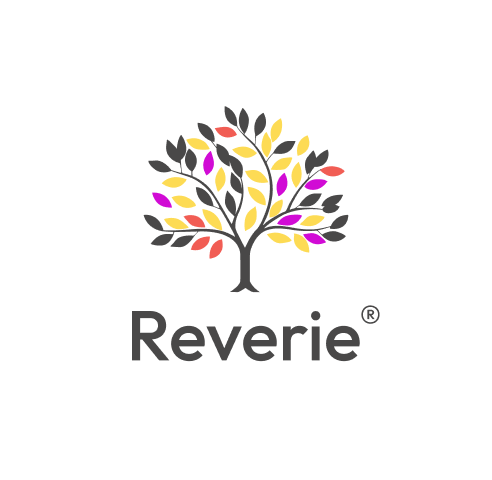Therapy Support in VR: Revolutionising Mental Health and Rehabilitation

 Author: Spark Team
Author: Spark Team
Therapy Support in VR: Revolutionising Mental Health and Rehabilitation
Introduction to Therapy Support in VR
In the evolving landscape of mental health and rehabilitation, effective therapy support is essential for achieving positive outcomes. Virtual Reality (VR) offers an innovative solution for enhancing therapeutic practices, allowing therapists and patients to engage in immersive, interactive experiences that foster healing and growth. Spark Emerging Technologies leverages VR technology to create therapy support solutions that improve patient engagement and therapeutic effectiveness.
Benefits of Therapy Support in VR
Implementing VR for therapy support provides numerous advantages that enhance mental health treatment and rehabilitation processes:
Immersive Environments: VR allows patients to engage in realistic scenarios that can help them confront fears, practice skills, and enhance coping mechanisms in a safe space.
Enhanced Therapeutic Engagement: The interactive nature of VR makes therapy sessions more engaging, helping to maintain patient interest and motivation throughout treatment.
Customisable Experiences: Therapists can tailor VR scenarios to meet the specific needs of each patient, creating personalised therapeutic experiences that promote individual growth.
Real-Time Feedback: VR applications can provide immediate feedback on patient performance during therapy exercises, enabling therapists to adjust treatment strategies accordingly.
Improved Accessibility: VR therapy solutions can be accessed remotely, making it easier for patients to engage in therapy from the comfort of their homes, thus reducing barriers to care.
Real-World Applications of Therapy Support in VR
Exposure Therapy: VR can be used to help patients confront phobias or traumatic experiences through controlled exposure in a safe environment.
Cognitive Behavioural Therapy (CBT): VR can enhance CBT by allowing patients to practice coping strategies and challenge negative thought patterns in immersive scenarios.
Physical Rehabilitation: VR can provide engaging exercises for patients recovering from injuries or surgeries, making rehabilitation more enjoyable and effective.
Stress and Anxiety Management: VR can create calming environments for mindfulness and relaxation exercises, helping patients manage stress and anxiety levels.
Social Skills Training: VR can simulate social interactions, providing patients with the opportunity to practice and improve their social skills in a low-pressure setting.
How Spark Emerging Technologies is Leading VR Solutions for Therapy Support
At Spark Emerging Technologies, we specialise in developing VR solutions that enhance therapy support and mental health treatment. Our immersive therapy tools provide healthcare professionals with the resources they need to improve patient care effectively. By collaborating with mental health professionals and rehabilitation specialists, we create tailored VR applications that address specific therapeutic challenges.
Addressing Key Challenges with VR Therapy Support
User-Friendly Interfaces: Our VR applications feature intuitive designs, ensuring that both therapists and patients can easily navigate and engage with the therapeutic content.
Integration with Health Systems: We ensure our VR solutions can seamlessly integrate with existing electronic health records (EHR) and therapy management systems for efficient workflows.
Data Privacy and Security: Protecting sensitive patient information is crucial; we implement robust security measures to safeguard data collected during VR interactions.
Customisation for Various Therapeutic Modalities: Our VR solutions are adaptable and customisable, allowing for deployment across different therapy fields, from mental health to physical rehabilitation.
Case Study: VR Therapy Support for Anxiety Management
A mental health clinic partnered with Spark Emerging Technologies to implement VR therapy support aimed at enhancing treatment for patients with anxiety disorders. The VR platform allowed therapists to guide patients through immersive environments designed to help them confront and manage their anxiety triggers. This initiative resulted in a 45% reduction in reported anxiety levels among participants and improved overall treatment satisfaction.
The Role of VR in Advancing Therapy Support
Therapy support in VR is transforming how healthcare providers approach mental health treatment and rehabilitation. By providing immersive, interactive experiences, VR enhances understanding and retention of therapeutic concepts, leading to improved patient outcomes and satisfaction. This innovative approach not only streamlines therapy processes but also fosters a culture of proactive mental health management.
Future of Therapy Support in VR
As VR technology continues to evolve, the potential for therapy support applications will expand significantly. Spark Emerging Technologies is committed to enhancing our VR solutions, anticipating more sophisticated applications that empower therapists and patients to engage deeply in the healing process. The future promises increasingly interactive and engaging VR experiences that will play a critical role in mental health and rehabilitation.
Conclusion
Therapy support in VR offers innovative solutions for enhancing mental health treatment and rehabilitation. Spark Emerging Technologies provides cutting-edge VR applications that enable healthcare professionals to visualise and assess therapeutic processes effectively. Discover how our VR solutions can transform your therapeutic initiatives—contact Spark Emerging Technologies for a demo today.
Contact Us:
Interested in optimising your therapy support process with VR? Contact Spark Emerging Technologies to schedule a consultation and learn how our solutions can benefit your organisation.
© 2026 All Rights Reserved | Company Reg No. 05327622 | Spark Emerging Technologies Limited





